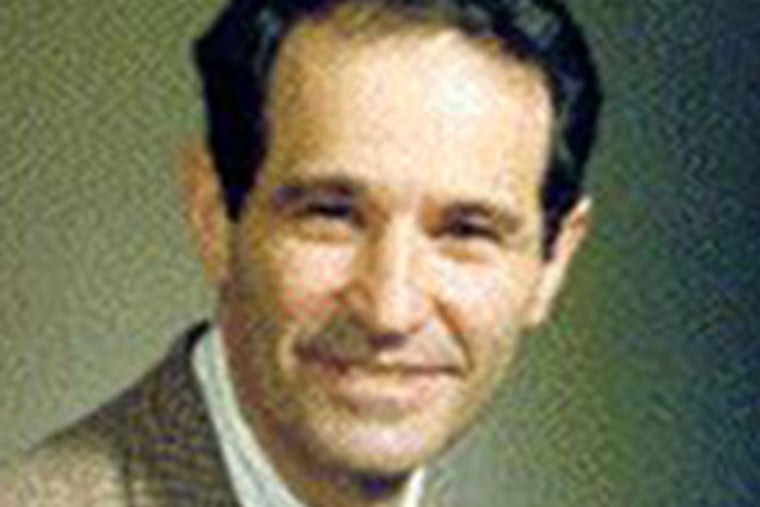William C. Davidon, 86, professor and peace activist
William C. Davidon, 86, a player in the peace movement in Philadelphia during the Vietnam War, died Friday, Nov. 8, of Parkinson's disease in Highlands Ranch, Colo., where he had lived since 2010.

William C. Davidon, 86, a player in the peace movement in Philadelphia during the Vietnam War, died Friday, Nov. 8, of Parkinson's disease in Highlands Ranch, Colo., where he had lived since 2010.
He was a leader in the National Committee for a Sane Nuclear Policy.
A physics professor at Haverford College starting in 1961, Dr. Davidon led various campus, scientific, and other peace organizations.
He worked with Philadelphia Resistance, which provided support to young men who refused to be drafted into the military, and to soldiers already inducted who wished to leave because of their opposition to the war.
Dr. Davidon told his family that one of the most gratifying aspects of his antiwar activism was the time he spent discussing the war with troops at a coffeehouse near Fort Dix.
As the war unfolded, Dr. Davidon was drawn to more aggressive protest, including participation in draft board raids conducted by the Catholic peace movement in Philadelphia and Delaware.
In 1965, Dr. Davidon and his colleagues on the Committee for Nonviolent Action were arrested for handing out antiwar leaflets near the Boeing helicopter plant on Woodland Avenue, Springfield, Delaware County.
The American Civil Liberties Union took the First Amendment case all the way to the Pennsylvania Supreme Court, where his lawyers succeeded in having the charges dismissed, and he later joined the ACLU board.
Dr. Davidon was born in Fort Lauderdale, Fla. The family moved to the Weequahic section of Newark, N.J., where he encountered "a lot of poverty and conspicuous injustice." He told family his views and zest for dissent were shaped by that atmosphere.
After his freshman year at Purdue University, Dr. Davidon transferred to the University of Chicago, where he earned bachelor's, master's, and doctoral degrees in physics. He interrupted his studies to enlist in the Navy, where he served for two years.
While a graduate student at the University of Chicago, he conducted physics research at the university, the Enrico Fermi Institute for Nuclear Studies, and Argonne National Laboratory.
In September 1959, when he was head of the Chicago section of the Federation of American Scientists, a comment he made about the hydrogen bomb in a speech at the City Club of Chicago was repeated by Soviet Premier Nikita Khrushchev in a major address on disarmament before the U.N. General Assembly.
"I happened to read recently a remark by the American nuclear physicist W. Davidson, who noted that the explosion of one hydrogen bomb releases a greater amount of energy than all the explosions set off by all countries in all wars known in the entire history of mankind. And he, apparently, is right," Khrushchev said.
Reporters for the New York Times traced the quote to Dr. Davidon, and his family enjoyed the mention, even with the misspelled name, for years.
Dr. Davidon also was active in the civil rights movement. He traveled to the South in the 1960s, and participated in the march led by the Rev. Dr. Martin Luther King Jr. from Selma to Montgomery in 1965. He also joined the March on Washington in 1963.
In his last decade as a professor, he switched from physics to mathematics; he retired in 1991.
He is survived by sons Alan Davidon and Martin Libich; daughters Sarah Davidon and Ruth Davidon Rodgers; stepchildren Tracy Libros, Brad Libros, and Randy Libros; and eight grandchildren.
His third wife, Maxine Libros, died in 2010. Two earlier marriages - to the late Ann Morrissett Davidon and Phyllis Leon - ended in divorce. Phyllis Leon survives.
A memorial will be held here later.